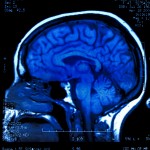
Chris Hollis appraises a recent Cochrane systematic review, which casts doubt over the quality of trial evidence and the clinical effectiveness of Methylphenidate for ADHD.
[read the full story...]
Chris Hollis appraises a recent Cochrane systematic review, which casts doubt over the quality of trial evidence and the clinical effectiveness of Methylphenidate for ADHD.
[read the full story...]
John Baker summarises a review of commonly prescribed medication that covers seven psychiatric drugs, including antidepressants, antipsychotics, benzodiazepines, amphetamines, methylphenidate and cholinesterase inhibitors.
[read the full story...]
Joff Jones highlights an important public health finding from a recent prospective cohort study about the effect of stimulant drugs on the risk of injuries in children with ADHD.
[read the full story...]
Lisa Burscheidt summarises a recent randomised controlled trial of combined methylphenidate and citalopram for depression in older people, which presents promising but limited findings.
[read the full story...]
A new study finds that psychiatric medications are implicated in many adverse drug events treated in US emergency departments. Nearly 1 in 10 of all adverse drug event visits to emergency departments are due to psychiatric drugs, including antidepressants, antipsychotics, lithium salts, sedatives, anxiolytics and stimulants.
[read the full story...]
Until fairly recently, it was thought that autism spectrum disorder (ASD; previously known as PDD or pervasive developmental disorder) and attention deficit hyperactivity disorder (ADHD) were two entirely separate childhood-onset conditions and that they could not both be diagnosed in one individual. Numerous studies in the last decade have shown that, in reality, a number of [read the full story…]

Attention deficit hyperactivity disorder (ADHD) is characterised by inattention, excessive activity levels and impulsive behaviours. Although it is an early developmental condition and is associated with childhood, in many instances, it is a lifelong condition. ADHD in adulthood is increasingly being recognised. Clinical guidelines and research suggest that the stimulant drug methylphenidate can reduce ADHD [read the full story…]

How brain imaging can help us understand mental health problems and their treatment is another service that the mental elf team will hopefully be able to offer. By blogging about interesting new studies we hope to help you pick up a wee bit of how MRI, CT, EEG and MEG adds to our understanding. While [read the full story…]

The ADHD Voices (Voices On Identity, Childhood, Ethics and Stimulants) report was published yesterday and received a significant amount of press coverage. The outcomes of this work are a 46-page report and 18-minute video, that aim to inspire a fresh public conversation about the ethics of Attention Deficit/Hyperactivity Disorder (ADHD) diagnosis and stimulant drug treatments [read the full story…]

Back in February, I blogged about a cohort study published in the New England Journal of Medicine, which concluded that ADHD drugs are not linked with an increased risk of serious cardiovascular events. The last few years has seen heated debate about the use of central nervous stimulants in children and young people. The lack [read the full story…]